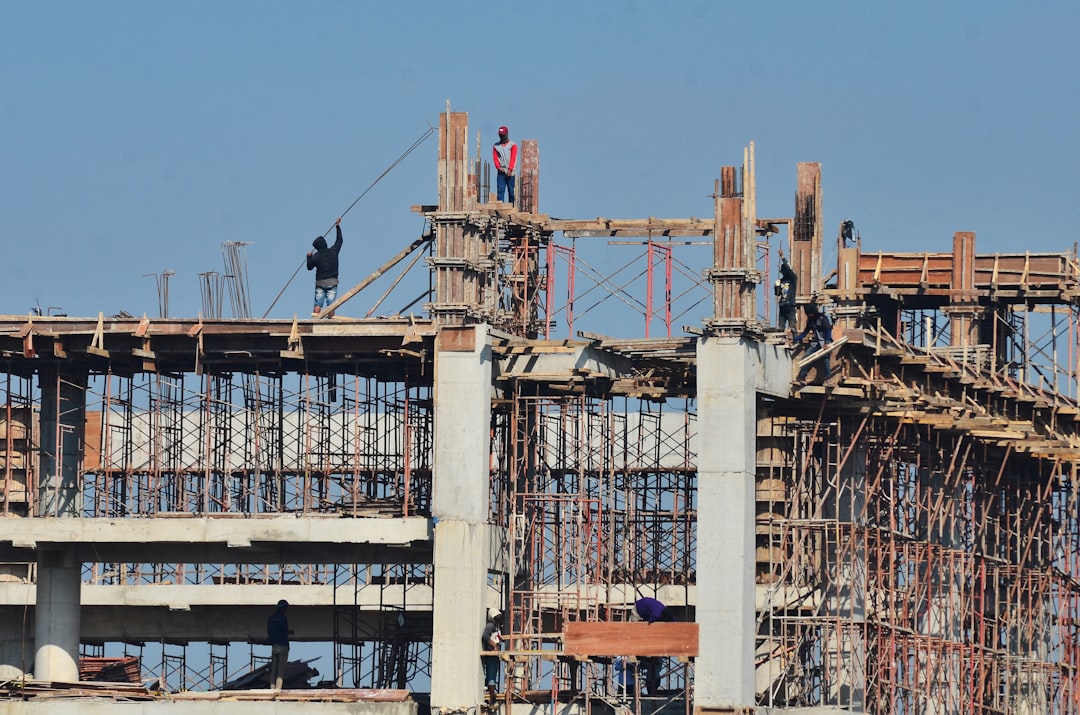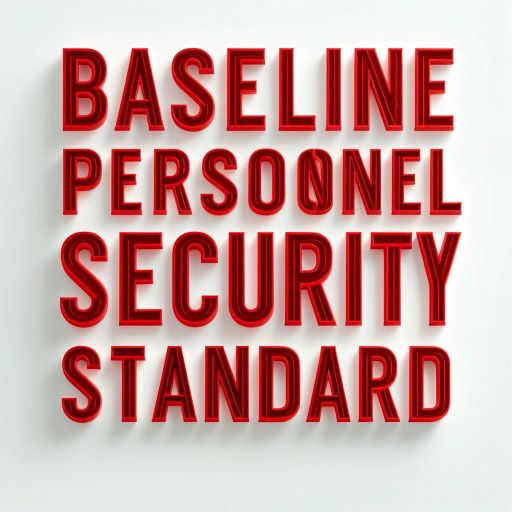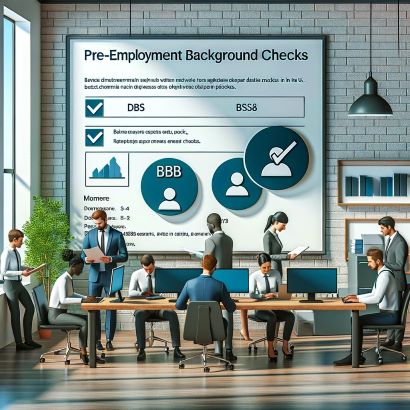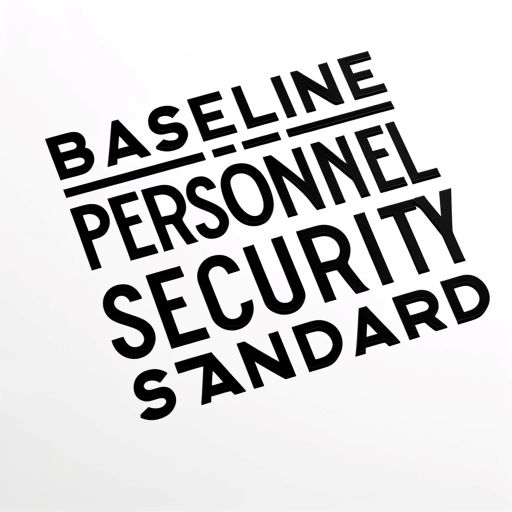

However, BS7858:2019 also outlines specific storage and handling procedures for the sensitive information gathered during the vetting process, reflecting its more rigorous data collection. BPSS checks are generally conducted as a one-time check prior to employment to establish a baseline of trust and security clearance.
However, depending on the nature of the work and the level of security required, BPSS checks might be revisited if a person's role or security clearance level changes. Employers must ensure that information is not used discriminatorily and is stored only as long as necessary for security purposes. This process involves reaching out to past employers to confirm periods of employment, roles held, and reasons for leaving, which can take time if past employers are slow to respond or if the candidate has worked internationally.
Organizations must handle all personal information according to the UK's Data Protection Act 2018, ensuring that applicants' data is processed in a secure, lawful, and fair manner. When undergoing a BPSS check, you're subjected to a thorough screening process to confirm your trustworthiness and eligibility for accessing sensitive information.
Providing evidence of volunteering activities or caring responsibilities could form part of the supplementary checks during BPSS clearance. Continuous monitoring and updating of BPSS clearance are recommended for roles that involve ongoing security concerns.
Valid documents such as a passport or a Home Office document are required to prove your national and immigration status. BPSS checks are governed by standards set by the UK government, specifically designed to comply with national security guidelines for personnel working in secure environments.
Follow our guide to apply for BPSS clearance successfully.

Posted by Jasmine Roberts on 2024-10-08
Keep your BPSS clearance active with proper renewals.

Posted by Jasmine Roberts on 2024-06-24
Learn how BPSS clearance protects government data.

Posted by Jasmine Roberts on 2024-06-14
BPSS checks validate that individuals are trustworthy and suitable for roles with potential exposure to SECRET and TOP SECRET information, even though BPSS itself isn't a formal security clearance. Continuous monitoring ensures ongoing compliance with legal requirements and maintains the integrity of the workforce. In industries where security is paramount, BPSS clearance acts as a first line of defense against potential internal threats.
HMRC tax records and National Insurance contributions can be used to validate your employment history. It also reinforces the security of the working environment by ensuring that all employees are legally entitled to work.
This step is vital to confirm that the individual is who they claim to be, which is fundamental in preventing identity fraud within high-security environments. In the UK, it's mandatory for employers to ensure that their employees have the legal right to work before commencing employment.
Organizations that fail to properly conduct these checks risk breaches of security, financial penalties, and damage to reputation. Adhering to these requirements is crucial for successfully obtaining BPSS clearance and gaining access to UK OFFICIAL and SECRET assets.

From a security perspective, the right to work check is foundational in the BPSS process because it ensures that individuals are not only legally employed but also properly vetted. The identity verification process is a crucial part of BPSS checks. While the typical duration for a BPSS check ranges from two weeks to a month, it's important for both employers and candidates to be prepared for variations based on the factors discussed.
What Is in a BPSS Check? This information is critical in assessing whether an individual might pose a risk to national security or the safety of the public.
As the future of BPSS compliance evolves, staying up to date with the process and maintaining valid clearance is vital for individuals in sensitive positions. It requires individuals to provide valid, government-issued identification documents, such as a passport or driver's license.
Hence, BPSS checks are an essential aspect of security practices for entities associated with the UK government. Identity checks are essential, requiring verification through official documents to confirm personal details.

Understanding the timeline for a BPSS check is crucial for both employers and candidates to plan accordingly. Verification of special circumstances such as maternity leave or military service may also be necessary to finalize the additional investigations for BPSS clearance. As the industry evolves, here are some key aspects to ponder:1.


Organizations that fail to properly conduct BPSS clearance may face significant risks, including security breaches and legal consequences. Criminal Records Check: Verification of any unspent criminal records is crucial for evaluating suitability for BPSS clearance. This process not only supports the legal operation of businesses but also protects against potential security risks associated with unauthorized employment.
In conclusion, the right to work check is a fundamental part of BPSS checks in the UK, ensuring legal compliance and upholding high security standards within organizations. According to the Equality Act 2010, it is illegal for employers to discriminate against candidates on the basis of protected characteristics such as race, religion, sex, age, and disability.
These documents can include passports, biometric residence permits, national identity cards, and work visas. BPSS clearance is essential for individuals with access to government assets and sensitive information, as it confirms the honesty and integrity required for specific roles.
Generally, a BPSS check can take anywhere from two weeks to a month to complete. Character references This screening, which is a baseline personnel security standard in the UK, includes checks like Basic DBS Check, ID Check, Right to Work check, and 3-Year Employment History Check.
This transparency helps maintain trust between the employer and the employee, and ensures that the process is viewed as legitimate and fair. Some organizations may stipulate more frequent renewals based on their internal policies. Each document serves as a puzzle piece in the larger picture of your suitability.
BPSS checks typically include four main elements: identity verification, employment history check, right to work confirmation, and a basic criminal record check. The role of BPSS clearance in maintaining public trust cannot be overstated.
Social workers dealing with sensitive cases, such as child protection or mental health issues, need BPSS clearance to ensure they handle such vulnerable information with the utmost integrity and confidentiality. This requirement aims to evaluate your movements and assess potential risks associated with overseas stays.
Some organizations may mandate more frequent renewals based on internal policies.4. A criminal record check is conducted to ascertain if the individual has any convictions that might be relevant to their suitability for the position.

BPSS vetting includes checking identity details such as name, address, and date of birth, along with employment history, criminal record, and legal right-to-work status.